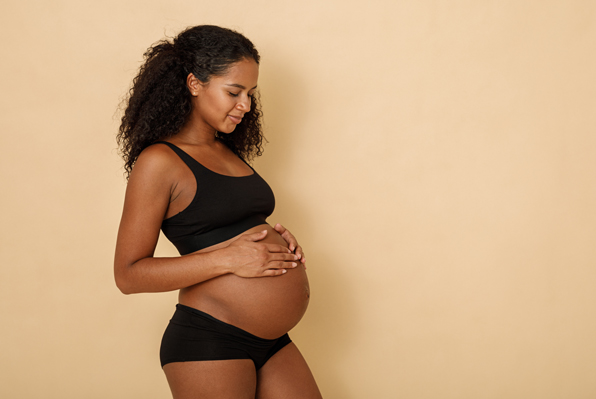This month is stress awareness month and whilst the mental health aspect of stress is well documented, sometimes we neglect to talk about the physical effects of stress on women’s health – particularly the female reproductive system.
If 2019 has been a stressful year for you so far, you are not alone. Almost every section of society (children, students, teachers, workers, both men and women, young and old) has made the headlines because of the ‘stress epidemic’ that has gripped our nation and the world. Today, it is estimated that one in six people have experienced a mental health issue in the last week1 and that one in three sick notes handed out by doctors are for mental health problems2.
Stress can create hormonal imbalances, which over extended periods of time can wreak havoc on a woman’s general health. In addition, there are certain times of life when female hormones are under duress naturally, such as at childbirth or during puberty, and the menopause. At these times, it’s easy to become trapped in a cycle of stress events and triggers that leave you feeling exhausted and overwhelmed.
Dr Alex Eskander, Consultant Gynaecologist at The Gynae Centre, explains: “Women today have specific challenges that they face at home, at work and in society. Being in control and creating ‘successful’ lives, children and careers is becoming more demanding of their time and energy. Whilst increasingly both women and men are experiencing stress, women tend to present with more physical symptoms than men. Understanding these stress factors and how daily stress affects the body is vital in to ensure you stay as fit and healthy as possible, despite the stresses of life.”
So, what stress indicators should we be looking for?
General Symptoms Of Female Stress
- Overeating
- Feeling tense
- Poor memory and concentration
- Increased alcohol or nicotine consumption
- Mood swings
- Feeling helpless
- Irritability
Amenorrhea – Why Periods Stop During Times Of Stress
Possibly one of the most alarming symptoms of stress is when periods stop. It’s not uncommon for this to happen during times of excessive exercise, weight loss and stress3. To understand why menstruation can stop, it’s important to realise that the menstrual cycle is regulated by the pituitary gland which is connected to the hypothalamus and the central nervous system. Any disturbance to these organs can cause disruption to your cycle.
“It’s not unusual to have missed periods for up to three months. However, if the problem persists for longer than three months and it’s not because of contraception, you must arrange to see your doctor or gynaecologist without delay,” advises Dr Eskander.
Your gynaecologist will be able to rule out pregnancy and perform some initial investigations to assess why your periods have stopped.
Hair Loss – A Physical Symptom Of Stress
Any kind of stress, physical or perceived, on the body causes hormones fluctuations. Imbalances in hormones such as cortisol, adrenaline, oestrogen, testosterone, thyroid and noradrenaline create physical symptoms and ailments. Although hormone fluctuations were designed for ‘fight or flight’ responses during times of danger, in today’s society we find that these responses are all too common for a range of personal issues: aggravation from traffic, stress at work or a relationship breakdown. Studies in recent years have shown that triggers for serious mental health issues, such as post-traumatic stress disorder, are as likely to come from ‘everyday’ life situations as they are from natural disasters or war zones4.
Hair loss is linked with hormone imbalances. The best way to identify what is happening to your body is to get tested. A well woman test will put your mind at ease if you feel that you are experiencing physical symptoms of stress.
How Stress Levels Can Affect Fertility
If you are trying to have a baby, it’s extremely important that your body is physically ready to conceive and carry a child. Being overweight, underweight, sedentary, stressed and generally unfit will create hormone imbalances within the body that, again, can have an effect on your body systems, including the reproductive system.
If you are so stressed that your periods have stopped or are irregular, it will be increasingly difficult for you to get pregnant. Knowing your cycle and understanding the best times to conceive are important factors to consider when trying for a baby. If you have any kind of ovulation disorder, you are likely to experience difficulties having a baby.
Menopause And Childbirth – Triggers For Stress
Menopause and childbirth create their own set of stress triggers. The demands of both cause physical problems and mental health issues. Understanding the physical changes and coming to terms with bodily differences can cause stress for some women. Whilst neither menopause or childbirth can be directly attributed to causing stress, they are definite triggers, especially in those who have a predisposition or genetic history of stress disorders. It is estimated that around 20% of women will experience depression during the menopause, with an increased risk during the perimenopause (years leading up to menopause) that tails off during the postmenopausal phase5.
What Can Be Done About The Effects Of Stress On The Female Body?
If you are experiencing physical symptoms of stress for prolonged periods of time, it is absolutely essential that you visit your healthcare provider or gynaecologist. General examination and testing will give you the information you need to make good choices about how to deal with your issues.
Lifestyle choices also play an important role in managing everyday stress. Eating well: good one ingredient healthy foods, lots of fibre, good protein sources and vegetables, avoiding processed and refined fatty foods, avoiding alcohol and caffeine which can both trigger fight or flight responses. Plenty of rest and regular exercise, alongside a good diet will help you to cope better with stressful or dramatic instances.
We all feel stressed from time to time. Some people deal better with stress than others and some are predisposed to feeling stress more severely than others. However, prolonged periods of stress will have an impact on your physical being. If you start to notice any signs of physical disruption, such as those noted above, you should speak to your health care provider straight away.
At The Gynae Centre, we provide well women checks and cutting-edge treatments for all kinds of sexual health issues, including missed and irregular periods, fertility problems and menopause treatments. If you are concerned about the effects of stress, or would like to speak to one of our consultants, please contact us on 020 7580 8090.






